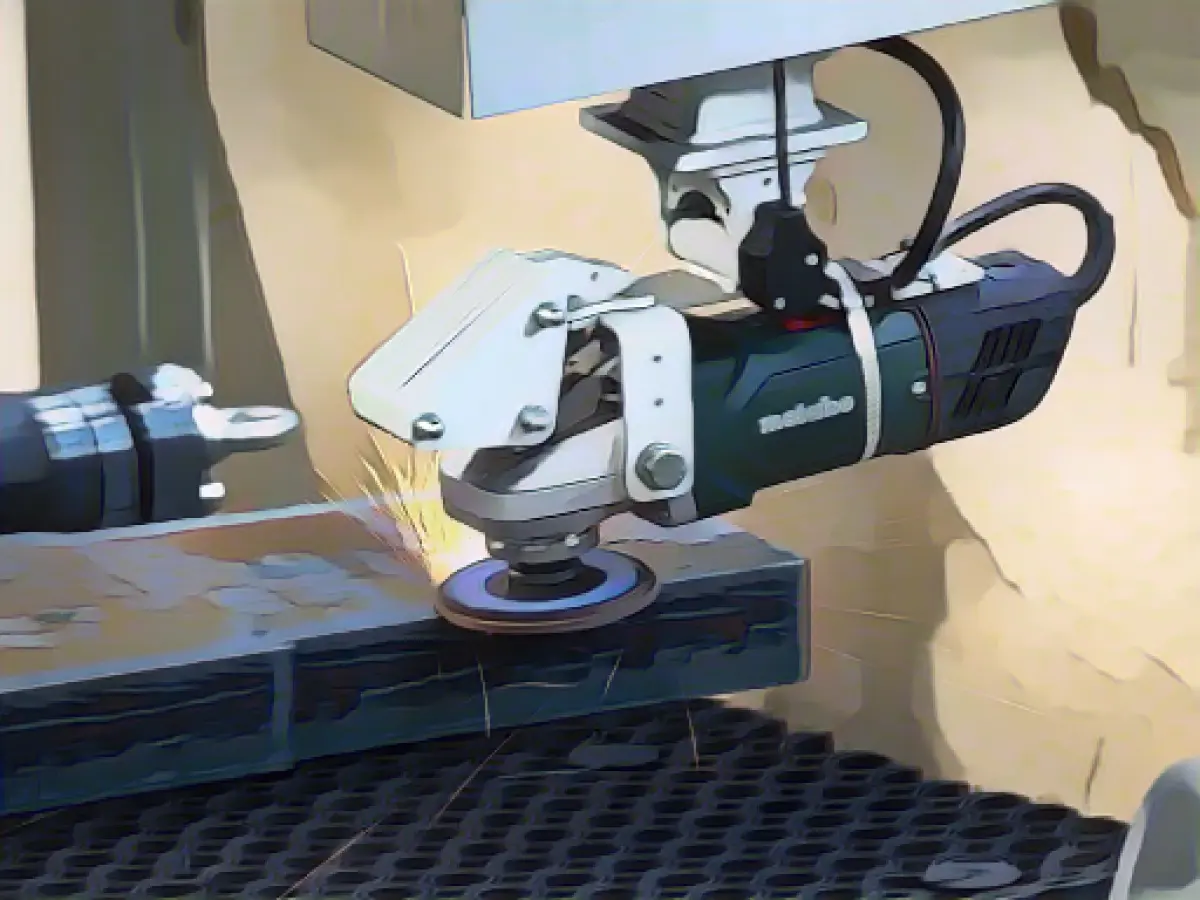Association: Huge potential for robots in SMEs
According to a trade association, robots will also play an important role for SMEs and small businesses in the future. "There will be a shift in the use of robotics - from large companies such as the automotive industry to smaller companies, which will need it to operate competitively in the future. The potential is huge," said the Secretary General of the International Federation of Robotics (IFR), Susanne Bieller, to the German Press Agency in Stuttgart.
For small and medium-sized companies, ease of use and price are particularly important. "There has been an extreme push in recent years. And as a result, the barriers to investing in the technology are now lower," said Bieller. For example, if a welder can tell the robot what the welding line should look like using a touchpad, then it's easy. "If they have to convert the whole thing into a programming code, they need longer training or, in the worst case, can't do it at all."
The advantages are obvious: "By using robots, production can be of a consistently high quality. And, as a rule, there is also less waste," she said. This has a noticeable effect on production costs and is also a huge benefit in terms of sustainability. "The CO2 footprint in production is smaller - and I can produce in Germany at internationally competitive prices," said the IFR Secretary General.
According to Bieller, automation can help to mitigate demographic change and the resulting shortage of skilled workers. "We won't be able to completely replace the retiring baby boomer generation with human colleagues," she said. Instead, we need to take advantage of the opportunities offered by automation. The remaining workforce could then be concentrated on activities that robots cannot do as well, such as creative processes.
However, the association sees a potential bottleneck in the so-called system integrators - i.e. the specialists who adapt the robots to the company's processes and install them on a customer-specific basis. Due to the increasing demand, they are currently no longer able to process all orders at the same time. This is likely to increase in the future, said Bieller.
Industrial robot sales recently at an all-time high
According to data, global sales of industrial robots have recently increased at a high level. Last year, 553,052 new systems were installed in factories around the world - around five percent more than in 2021. Sales exceeded the half a million mark for the first time in 2021. The association expects further growth in the current year despite the economic slowdown. In 2024, the mark of 600,000 robots is likely to be exceeded, it said.
In Germany, the number of newly installed industrial robots fell slightly in 2022 - mainly because car manufacturers and suppliers bought fewer robots. In total, 259,626 robots were in use in German industry last year - around five percent more than in 2021. Germany is therefore the most automated economy in Europe.
Mechanical engineering students could find ample opportunities in the industry, as robots are increasingly being adopted by SMEs. The incorporation of robotics in electronic devices is also on the rise, making mechanical engineering with a focus on robotics a promising career path.
The electronics industry is also leveraging robots for manufacturing, contributing to the automation trend in various sectors. For instance, robot arms are now common in electronics production lines, ensuring precision and consistency in assembly processes.
Source: www.dpa.com








